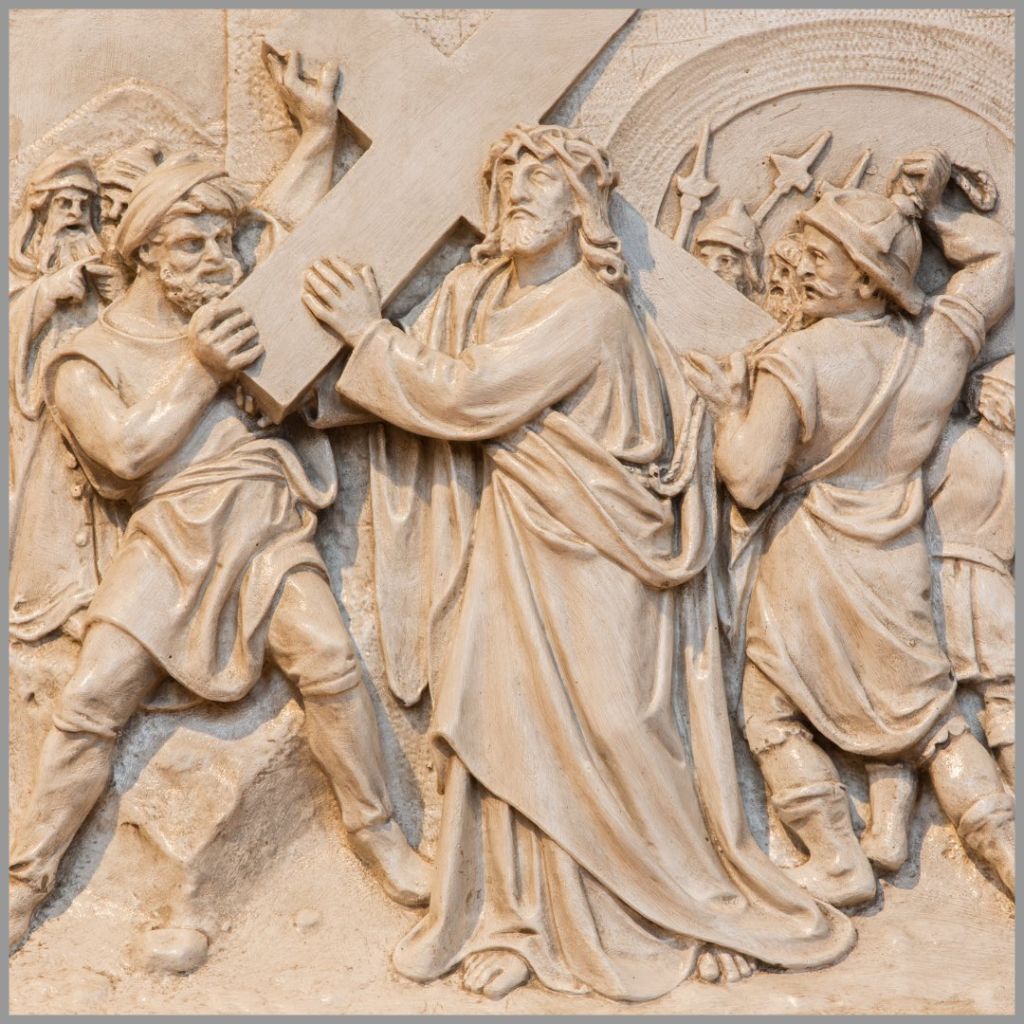For this week’s missionary post I want to engage in a little bit of guesswork, but I think I’m right! A passage in Mark 15 that I recently talked about online described Jesus on His way to the cross. Mark was pretty sparse with details, yet he inserted a comment that seems odd in the amount of detail that he shared: “Then they compelled a certain man, Simon a Cyrenian, the father of Alexander and Rufus, as he was coming out of the country and passing by, to bear His cross.” Cyrene was a Greek city in the province of Cyrenaica, in eastern Libya, in northern Africa. Why does Mark give the name of the man and even more strangely the names of his sons?
I believe that Simon is actually the man referred to in Acts 13:1: “Now in the church that was at Antioch there were certain prophets and teachers: Barnabas, Simeon who was called Niger.” Moreover I believe that Simon was either involved or at least an engine behind the team that birthed the church in Antioch in Acts 11:20-21: “But some of them were men from Cyprus and Cyrene (Simon’s place of origin), who, when they had come to Antioch, spoke to the Hellenists, preaching the Lord Jesus.” It was the Cypriots and the Cyrenians who dared to differ from the Jerusalem “mother church” believers, who were “preaching the word to no one but the Jews only” (Acts 11:19). The Cypriots and the Cyrenians reached out to the Gentiles. Antioch had a majority Gentile population (Greeks and Syrians) at that time. The Cyrenians preached to them and “the hand of the Lord was with them, and a great number believed and turned to the Lord” (Acts 11:21).
1. Mark could not possibly know the name of this man plucked unwillingly out of the crowd to carry the cross of the Lord Jesus unless that man had later become known in the church. This was a fleeting incident in the midst of a crowded scene where the procession behind Jesus on His way to the cross was mobile and chaotic. Simon would have disappeared quickly into the crowd when Jesus reached Golgotha. How would Mark know who he was? “It is hard to imagine how Simon could be with Jesus during the agonising journey to Golgotha, and not be changed. Staggering under the weight of the already blood-soaked cross bar, no doubt helped along by Roman curses and kicks, Simon must have been thinking, ‘Why me? Oh, why did they pick on me?’ Later, he would have realised the privilege he had been entrusted with.”
2. Mark tells us the names of Simon’s sons (“the father of Alexander and Rufus”). Unlikely as it was that Simon would be known, it is impossible that Mark could have known the names of Simon’s sons unless the sons had become well known in the early church. “The unexpected mention of his son’s names would seem to indicate that they were known to some of Mark’s readers. Mark identifies Simon as ‘the father of Alexander and Rufus’. Tradition states that they became missionaries; the inclusion of their names may suggest that they were of some standing in the Early Christian community at Rome. Mark’s Gospel, which was written for a Roman audience, seems to suggest that the audience knew who these men were. It has also been suggested that the Rufus (in Greek: Ῥοῦφον or Rhouphon) mentioned by Paul in Romans 16:13 is the son of Simon of Cyrene.”
3. The obvious answer is that this encounter with Jesus radically change Simon’s life, causing him to go back as a missionary to his own people from Jerusalem to Cyrene in Africa, and then later go on a missionary trip with others to Antioch.
4. The 2005 Scripture Union writer comments: “Traditions surrounding Simon have always been more important to the ancient African churches than to the European churches. Western scholars remain cautious about Simon, but black theologians convincingly identify him with Black Simon, an early Gentile convert (Acts 13:1). For what conceivable reason could Mark mention his sons, unless they were already known to his readers?”
The lesson for us today is obvious. What seemed a racially motivated abuse on a black African minding his own business in Jerusalem, forcing him to carry the cross of the unknown Jesus, then in God sovereignty radically and totally changed not just Simon, not just his sons, but in part at least Antioch – then Paul as he was sent out from Antioch later. What is God doing in our lives that at first sight seems abusive, racially motivated or whatever, and yet turns out to be the ‘accidental’ doorway to God’s call on our lives?



